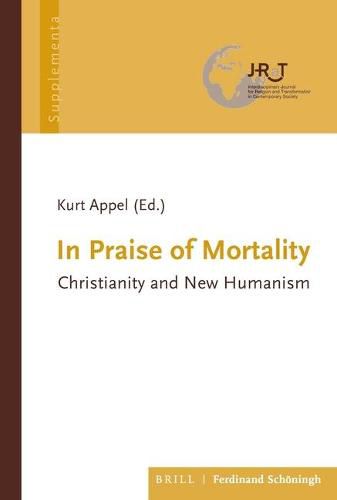Readings Newsletter
Become a Readings Member to make your shopping experience even easier.
Sign in or sign up for free!
You’re not far away from qualifying for FREE standard shipping within Australia
You’ve qualified for FREE standard shipping within Australia
The cart is loading…






This volume shows that the vulnerability and mortality of life are the starting points of its transcendence which exceeds all representability. Only by renouncing fantasies of omnipotence of a theological, philosophical and scientific nature, human beings can advance to their destiny and introduce a New Humanism enabling a bond between all that is alive and between human beings and their transcendent dimension. This includes an understanding of time that no longer follows chronological-mechanistic constraints, a non-instrumental understanding of language that finds its dimension of depth in prayer and an understanding of God in which God is inseparably related to the openness of human existence. In traversing the arising avenues of thought, the four-part volume, written by three authors but to be read as a unity, is oriented towards a philosophy of central biblical passages, Hegel’s The Phenomenology of Spirit, Musil’s Man Without Qualities, Holderlin’s poetry and Lacan’s psychoanalysis.
$9.00 standard shipping within Australia
FREE standard shipping within Australia for orders over $100.00
Express & International shipping calculated at checkout
Stock availability can be subject to change without notice. We recommend calling the shop or contacting our online team to check availability of low stock items. Please see our Shopping Online page for more details.
This volume shows that the vulnerability and mortality of life are the starting points of its transcendence which exceeds all representability. Only by renouncing fantasies of omnipotence of a theological, philosophical and scientific nature, human beings can advance to their destiny and introduce a New Humanism enabling a bond between all that is alive and between human beings and their transcendent dimension. This includes an understanding of time that no longer follows chronological-mechanistic constraints, a non-instrumental understanding of language that finds its dimension of depth in prayer and an understanding of God in which God is inseparably related to the openness of human existence. In traversing the arising avenues of thought, the four-part volume, written by three authors but to be read as a unity, is oriented towards a philosophy of central biblical passages, Hegel’s The Phenomenology of Spirit, Musil’s Man Without Qualities, Holderlin’s poetry and Lacan’s psychoanalysis.